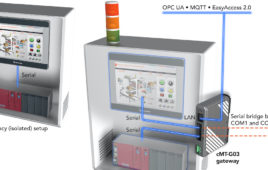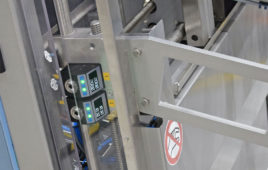Surprisingly (at least to some), Nevada is one of the country’s most innovative states, with autonomous vehicles currently being tested on their roads, along with drones in the skies above. City planners and government officials in the state have been very receptive to new and developing technologies in recent years, which has brought new companies, jobs, and investments. Continuing that trend, the state is about to be tested by the upcoming adoption of widespread 5G connectivity, bringing with it the possibility of connecting almost every conceivable technology and device to the internet.
5G will enable far greater automation, customization, and (inevitably) privacy concerns. The state has an extensive history with public-private partnerships and regulation tweaks that made it an early and able adopter for testing new technologies, and officials are already calling for increased investments and attention with 5G’s rapid approach. Described as the “innovation state” by some, Nevada has made numerous efforts in recent years to attract investment and job opportunities from technological innovators. In 2016 for example, Reno became the country’s first city where regular drone delivery services occurred, when government officials signed off on a deal between 7-Eleven and drone maker Flirtey that allowed a local convenience store to use drones in delivering orders to nearby customers.
The state’s openness to concepts like drone innovation, is described by some state and federal officials as a sort of “balancing act” that attempts to draw in new economic opportunities, while posting “guardrails” in place for assuring public safety. Nevada has taken similar approaches in implementing autonomous vehicles, with automated bus systems already running in Las Vegas. Nevada’s Department of Transportation has even deployed sensor technology that allows more advanced communication between road signs, traffic lights, and vehicles.
Maintaining their status as one of the country’s most innovative states will likely require more investment in technologies like sensors and compatible roadways in the coming years, as 5G opens more autonomous vehicle development, which can lead to further economic windfall. Researchers at Qualcomm, believe 5G will unlock over $2.4 trillion in economic output over the next 16-18 years in the automotive sector alone. Essentially, Qualcomm estimates about 20 percent of 5G-related benefits will be concentrated specifically in getting people and deliveries from one point to the next.
If states like Nevada can successfully leverage this when 5G is initially deployed, this could be instrumental in drawing more investments and boosting productivity. The mass adoption of 5G is still a few years away, but a handful of individual companies began testing the technology in specific cities—one of them being Reno, Nevada, where Charter Communications announced plans to test the network back in January.
Filed Under: Automotive, Wireless • 5G and more, M2M (machine to machine)




